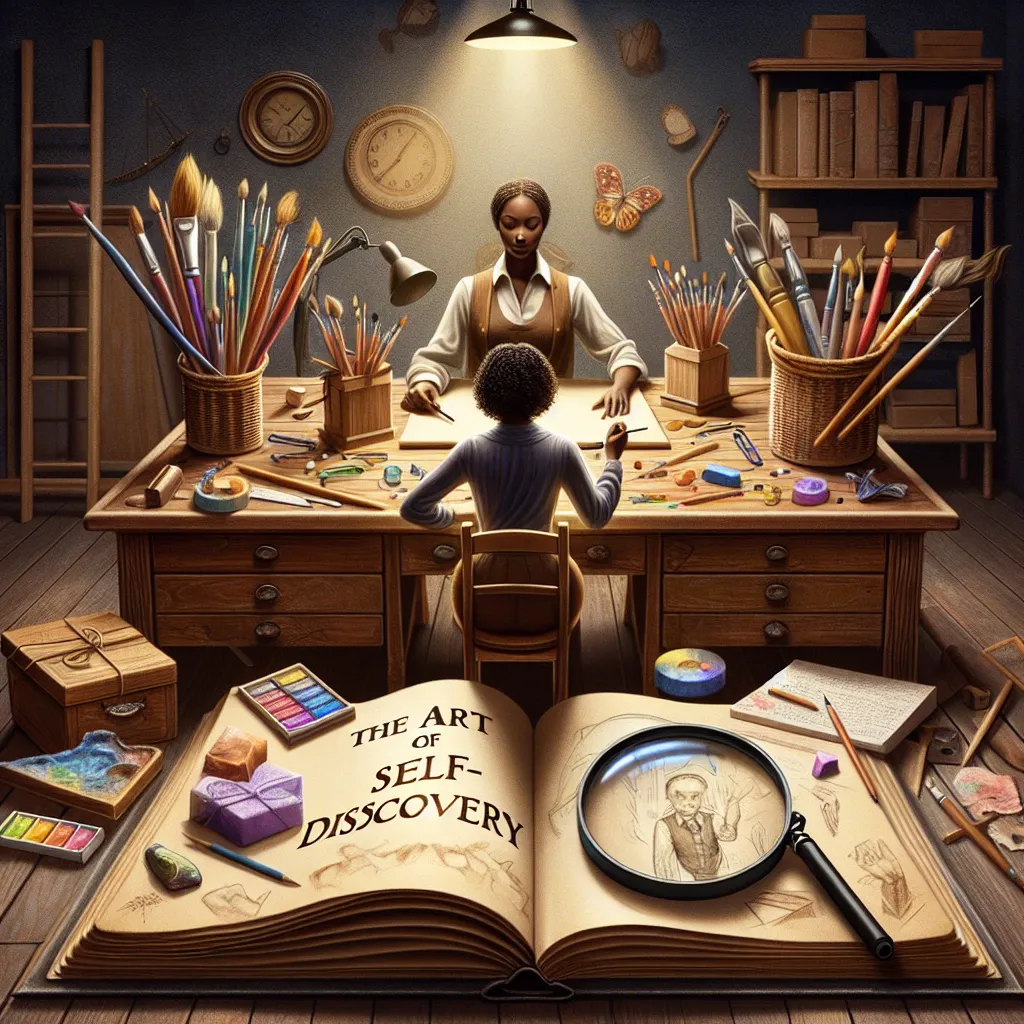The Art of Self-Discovery: How Personality Tests Enhance Self-Awareness
In our quest for self-discovery, understanding who we are at the core is an ongoing journey that unravels throughout life. One of the most intriguing ways to peek into our own psyche and obtain a deeper sense of self is through personality tests. These tests have become a popular tool in enhancing self-awareness, offering insights into our strengths, weaknesses, and intrinsic motivations.
The science of personality assessment is a branch of psychology that taps into various aspects of our character. Well-established theories, like the Big Five personality traits and the Myers-Briggs Type Indicator (MBTI), emphasize different dimensions of our personalities that shape our behavior and influence our interactions with the world.
Personality tests can be profound catalysts for self-awareness. By systematically evaluating various traits, individuals can emerge with a clearer understanding of their emotional responses, communication styles, and decision-making processes. Moreover, personality assessments invite us to reflect on our personal and professional relationships, paving the way for improved dynamics in both spheres.
Self-awareness is paramount to personal development. It involves recognizing our thoughts, feelings, and behaviors, and understanding how these elements affect our life experiences. Personality tests serve as a mirror, reflecting our true selves back at us in a structured and digestible format. This reflection can lead to several benefits, such as increased emotional intelligence, better stress management, and the fostering of stronger relationships.
One of the notable outcomes of taking personality tests is the heightened emotional intelligence (EQ) that often ensues. Emotional intelligence is the ability to recognize and manage our own emotions, as well as empathize with others. By unraveling the nuances of our emotional mechanisms through these tests, we can learn to better regulate our moods and respond more effectively to situations, which is invaluable in both our personal lives and workplaces.
Another compelling reason to turn to personality tests is their contribution to stress management. By pinpointing personality traits that may predispose us to higher levels of stress or anxiety, we can develop tailored coping strategies. Understanding our stress responses can empower us to preemptively address challenges before they escalate, fostering resilience and wellbeing.
Stronger relationships are also a byproduct of increased self-awareness, courtesy of personality tests. By recognizing and embracing our quirks and qualities, we can adapt our communication to better align with others, acknowledge diverse perspectives, and nurture healthier interpersonal dynamics. For instance, understanding that one is naturally introverted can prompt the creation of clear boundaries and the selection of social interactions that are energizing rather than draining.
The professional realm can greatly benefit from the insights provided by personality assessments. Career development, team building, and leadership skills are all areas ripe for growth when informed by a thorough understanding of personal attributes. Employers and employees alike can leverage this information to create a more harmonious and productive work environment.
For individuals carving out their career paths, knowing their personality traits can guide them towards roles that resonate with their innate abilities and interests. Similarly, teams can optimize their collective performance by acknowledging each member’s unique contributions and fostering an environment where diverse personality types can thrive. This also applies to leadership, where self-awareness can translate into a more empathetic and effective management style.
In addition to the widely acknowledged tests like the MBTI and the Big Five, other assessments like the Enneagram, StrengthsFinder, and DISC also provide unique lenses through which to view one’s personality. Each test boasts its own strengths and can be selected based on the type of insight one is seeking.
However, there are potential pitfalls to consider when delving into personality tests. Some critics argue that these assessments can oversimplify complex human behaviors into neat categories, which might not always capture the fluid nature of one’s personality. Furthermore, the outcomes of such tests should not become restrictive labels but rather stepping stones toward greater personal understanding.
When approached with a critical mind and an open heart, personality tests become valuable tools in the art of self-discovery. They can facilitate a lifelong journey of self-improvement and learning. As we become more self-aware and attuned to our personality traits, we can navigate life’s challenges with greater finesse and harness our potential to its fullest.
In conclusion, the art of self-discovery is a multifaceted endeavor that invites us to continuously explore and understand our inner workings. Personality tests are a vital component in this exploration, offering structure, clarity, and a path to heightened self-awareness. Whether used for personal introspection or as a bridge toward improved social and professional interactions, these assessments can significantly enhance our journey through the complex tapestry of human personality. As we delve deeper into the labyrinth of our psyche, we uncover the power of knowing ourselves and the infinite possibilities that self-awareness can bring.



Leave a Comment